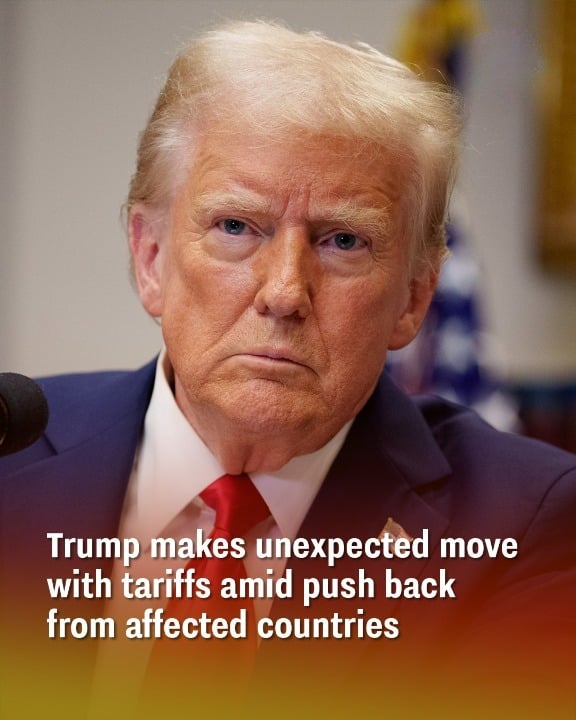However, his renewed emphasis on tariffs has taken center stage, drawing the most attention and global backlash.
Tariffs as a Tool for Economic and National Security
Trump has framed tariffs as a critical component of his economic vision, describing them as a necessary response to “extraordinary threats” such as illegal immigration and the growing fentanyl crisis. The administration argues that imposing import taxes on foreign goods will protect American jobs, industries, and national security, while reducing reliance on foreign markets—particularly those Trump has accused of unfair trade practices.
By making imports more expensive, the tariffs are intended to encourage domestic manufacturing and strengthen U.S. economic independence. Trump’s team has linked these policies to combating societal issues such as the opioid epidemic, arguing that foreign-sourced fentanyl has contributed significantly to the crisis.
Strong Pushback from Key Trade Partners
Despite the administration’s defense of the tariffs, America’s closest trade allies—Canada and Mexico—have voiced strong opposition, warning of potential economic fallout.
Canada and Mexico, both key partners in the United States-Mexico-Canada Agreement (USMCA), had anticipated a more collaborative approach under Trump’s second term. However, new tariffs, particularly those affecting steel, aluminum, and the auto industry, have jeopardized trade relations.
China, already embroiled in an ongoing trade dispute with the U.S. since Trump’s first term, has condemned the move. Chinese officials warn that further tariff escalation could destabilize global markets and intensify economic tensions.
A Renewed Focus on Trade War with China
Trump has long criticized China for what he views as predatory trade practices, including intellectual property theft, forced technology transfers, and trade imbalances. The trade war that began in his first term saw multiple rounds of tariffs, leading to the 2020 Phase One Trade Deal—but tensions never fully resolved.
Now, Trump is doubling down on tariffs as a means of pressuring Beijing, arguing that these measures are essential to restoring balance in U.S.-China trade relations. Critics, however, warn that this approach could lead to retaliatory actions, further complicating diplomatic efforts between the two economic giants.
Domestic and Economic Reactions
Reactions within the United States remain deeply divided:
Supporters praise Trump for taking a hardline stance on economic independence, with many conservatives applauding his efforts to shield American industries from foreign competition.
Critics, including economists and business leaders, argue that these tariffs could backfire, leading to higher consumer prices, supply chain disruptions, and strained business operations that rely on imports.
Global Uncertainty and the Road Ahead
With international markets closely watching, Trump’s tariff strategy is reshaping America’s economic relationships in real-time. While his administration argues that these aggressive trade policies are essential for protecting U.S. interests, the potential economic consequences—including rising costs, retaliatory tariffs, and diplomatic fallout—remain a major concern.
What’s Next?
As Trump continues to push forward with these policies, the world is left anticipating the long-term effects of his economic strategy. Will these tariffs boost domestic industries as promised, or will they trigger further global economic instability?
What is certain is that Trump’s second term is unfolding with the same level of bold decision-making and controversy that defined his first. Whether these policies strengthen or strain the U.S. economy remains to be seen—but the impact will be felt far beyond American borders.

